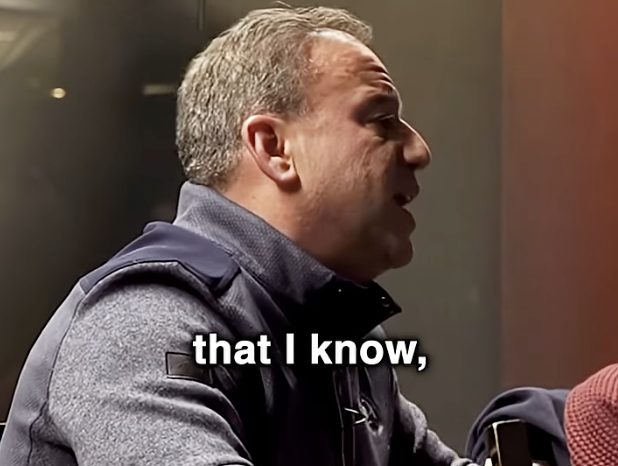The Power of Failure as a Teacher
Too many people are paralyzed by the fear of making mistakes. They beat themselves up over small errors and allow self-criticism to prevent them from taking necessary risks. I’ve learned that this mindset is entirely backward.
Every super successful person I know has failed spectacularly. These aren’t just minor setbacks—I’m talking about failures that would make most people quit. The difference is that these individuals used their failures as stepping stones rather than stopping points.
Stop being so hard on yourself.
This isn’t just motivational fluff. It’s practical business advice. When you experience failure, you gain invaluable insights that success simply cannot teach you:
- You learn where the pitfalls are in your industry
- You develop resilience that becomes your competitive advantage
- You gain humility that makes you more coachable
- You discover what doesn’t work, narrowing your path to what does
- You build empathy that helps you connect with clients and team members
These lessons are worth their weight in gold in the business world. They’re why people seek advice from those who have weathered storms rather than those who have only seen sunshine.
My Million-Dollar Mistakes
When I lost that $100,000,000 portfolio, it wasn’t just a financial disaster—it was a complete identity crisis. Everything I thought I knew about business was called into question. I had to rebuild not just my career but my entire approach to business.
That experience taught me more than any success ever could. I learned about risk management in ways no business school could teach. I discovered the importance of diversification not just in investments but in business relationships. Most importantly, I gained perspective on what truly matters in business and life.
These hard-earned lessons became the foundation of the advice I now give to others. My failures are my credentials—more valuable than any degree or award I’ve received.
Turning Your Failures Into Future Success
If you’re beating yourself up over mistakes, stop immediately. Instead, ask yourself these questions:
- What specific lesson can I extract from this failure?
- How can I apply this lesson to improve my next attempt?
- Who else has failed in similar ways that I can learn from?
The answers to these questions transform failures from sources of shame into valuable assets. This mindset shift is what separates those who achieve extraordinary success from those who remain stuck in mediocrity.
I’ve coached countless entrepreneurs through this process. Those who embrace their failures rather than hide from them invariably accelerate their growth. They develop a kind of business intuition that only comes from having skin in the game and the scars to prove it.
The Competitive Advantage of Resilience
In today’s business environment, resilience isn’t just helpful—it’s essential. Markets change, technologies disrupt, and consumer preferences shift overnight. The ability to absorb failures, learn quickly, and pivot is worth more than perfect execution on an outdated strategy.
My biggest business successes came after my most painful failures. The strategies that built my post-failure success were directly informed by what I learned when everything fell apart. Without those failures, I would never have developed the insights that later created value.
So the next time you make a mistake, remember that you’re in good company. The business leaders you admire most have likely failed more spectacularly than you can imagine. Their success didn’t come despite their failures—it came because of them.
Stop being so hard on yourself. Start seeing your failures as the valuable assets they truly are. Your future success depends on it.
Frequently Asked Questions
Q: How do I know when a failure is actually a valuable lesson versus just a mistake?
Every failure contains lessons, but the value comes from your response. If you take time to analyze what went wrong, identify the factors within your control, and create a specific plan to approach similar situations differently in the future, you’ve transformed a simple mistake into valuable business intelligence.
Q: What’s the biggest mistake you made that led to losing the $100,000,000 portfolio?
My greatest error was overconfidence combined with insufficient risk management. I believed that my previous successes had made me immune to market shifts and that I failed to diversify properly. This taught me that past performance never guarantees future results and that humility is as important as confidence in business leadership.
Q: How long does it typically take to recover from a major business failure?
Recovery timelines vary dramatically based on the nature of the failure and your response to it. Financial recovery might take years, but the mental recovery—shifting from shame to learning—should happen as quickly as possible. The sooner you extract the lessons and begin implementing them, the faster you’ll not just recover but potentially exceed your previous position.
Q: Do you recommend sharing your failures openly with clients or team members?
Strategic vulnerability can be incredibly powerful. Sharing relevant failures demonstrates authenticity and creates trust. However, focus on what you learned and how it improved your approach rather than dwelling on the failure itself. This transforms your story from a confession into valuable guidance that benefits others.
Q: What’s the difference between learning from failure and developing a fear of taking risks?
Learning from failure means analyzing what went wrong, adjusting your approach, and moving forward with better information. Developing fear means allowing the emotional impact of failure to prevent future action. The key difference is whether you’re using the past to inform the future or allowing it to limit your future. Successful entrepreneurs do the former.







